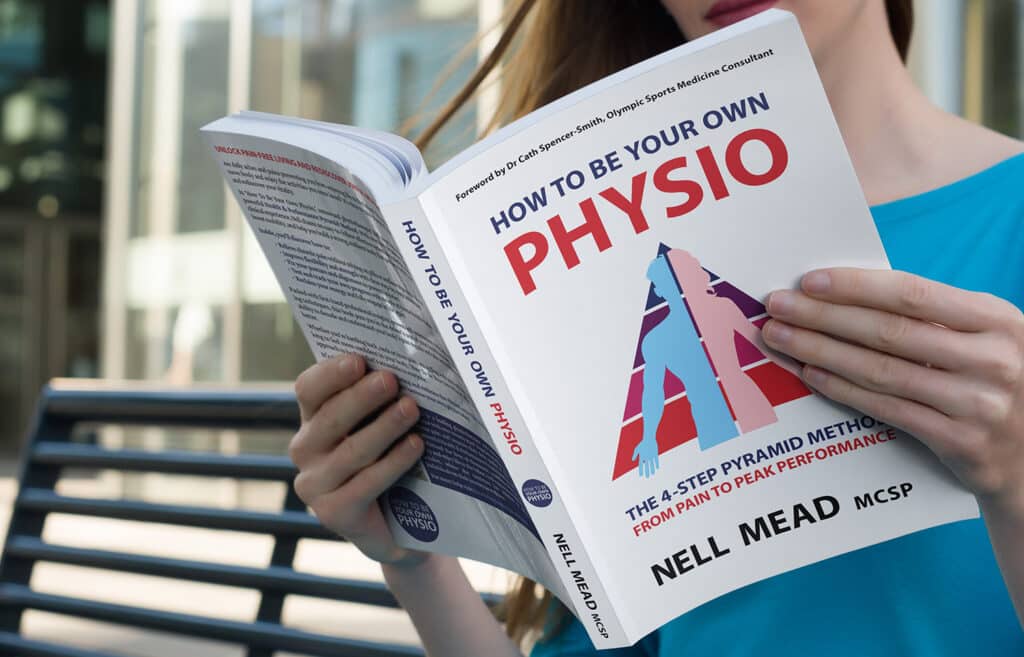Two months ago, I wrote about the difference between acute, local inflammation (first stage of healing: good) and chronic, systemic inflammation (body attacking itself: bad) and explained that the things you can do to optimise your system to reduce inflammation were to stop smoking, cut down on the alcohol, sort out your sleep hygiene, reduce your stress levels, drink plenty of water, eat well, and exercise in moderation with good movement patterns. We’ve been through sleep and stress in more detail – and a couple of weeks ago I started talking about diet, specifically about omega-3 fatty acids, and how they can affect inflammation. This week it’s time to look at the role of vitamins and minerals.
When it comes to weight loss or athletic performance, it’s often (correctly) said that you can’t out-train a bad diet. And the truth is, you are what you eat – so a regular intake of unhealthy food will contribute to a stressed-out, inflamed, unhealthy body.
Poor eating habits (eating irregularly, and eating the wrong sorts of food) can actually be a major factor in causing physical and chemical stress to your body. Excessive amounts of the wrong types of food are converted into free radicals in the body, which actually cause healthy cells to degenerate. The longer you leave this, the more malnourished you become. And if your diet is inadequate and not providing you with what you need, then exercising will actually make you worse, because when you train, you use up nutrients – and if you don’t replenish them efficiently, you will become more and more depleted. So – if you like to exercise, don’t imagine that it doesn’t matter what you eat – in fact, it matters even more!
For example, strenuous exercise uses up the antioxidant vitamins – Vitamins A, C and E. When you sweat, you excrete minerals including potassium, magnesium chloride and sodium bicarbonate. And when you raise your metabolic rate, you use up minerals including zinc, calcium, leucine, sodium and potassium which are used in the cycle of muscle breakdown, repair and regeneration.
Ideally, the solution would simply be to eat a really good, balanced diet, and that would provide you with all the nutrients you needed. But the unfortunate truth is that it’s virtually impossible to get all your recommended daily nutrients from food alone. The Journal of the International Society of Sports Nutrition published a study in 2006, which showed that out of 70 subjects (all of whom were actively trying to eat a healthy diet), precisely none of them achieved even the minimum recommended daily allowances of vitamins and minerals from their food.
This is why we recommend that people who are stressed, sleeping poorly, injured or wanting to exercise, should consider supplementing their diets with quality vitamin and minerals.
Specifically, we recommend USANA Cellsentials, one of the best multivitamin and mineral complexes out there.
One of only 3 supplement companies to be rated gold 5* in the Comparative Guide to Nutritional Supplements, USANA’s supplements are used by elite athletes worldwide, including most of the top 20 players on the WTA tennis tour. Their flagship products are the Vita-Antioxidant and Core Mineral supplements (the two together make up the CellSentials package), designed to be used together to combat stress and inflammation at the cellular level.
These are quite different to the normal multivitamins you can buy in a supermarket or health food shop, and there are several reasons for this.
One is the quality of ingredients. Supermarket brands use ingredients that are safe to eat, but not necessarily effective. If you’re going to spend any money at all, it’s much more sensible to choose a brand that only uses pharmaceutical grade ingredients and carries out its own quality control testing, as well as independent parties. All USANA products are pharmaceutical grade.
Another reason is the bioavailability – how well your body can absorb the vitamins and minerals. You may have noticed that, for example, when you go to buy a magnesium supplement (a common one, as some studies suggest that up to 80% of adults are deficient in magnesium), you can buy it in several forms – such as magnesium oxide, magnesium citrate or magnesium chloride. The commonest of the supermarket versions is magnesium oxide, as it’s cheap to produce – but it’s very difficult for your body to absorb it, so you might as well pop it straight down the loo! USANA use chelated magnesium, which is the form in which it’s found in food naturally, so it binds well to amino acids and is therefore easily absorbed. This is a big reason for variance in prices. Typically, the more expensive brands have gone to great lengths to produce a product the body can actually use, rather than just trying to get something on the shelf like the cheaper brands.
There’s also the dosage – how much vitamin and mineral you’re actually getting. Most high street multivitamins will tell you that taking them can help you achieve your RDA, or recommended daily allowance. But when you look at premium brands, they give you many times that. It’s not because they’re trying to kill you, or give you extra vitamins that you don’t need – it’s because the RDA is considered the minimum level you need, whereas premium supplement companies like USANA base their vitamin levels on the optimal dose recommended by the latest research, rather than on the government-based RDAs which are old, and which don’t take modern exercise and pollution levels into consideration.
Interested? Click here to take the USANA health questionnaire and work out the best combination of supplements to help you (you’ll need to put your region down as USA to get the full range of options) – or, if you know exactly what you want or would simply like to try the Cellsentials, click here to go to my USANA shop and create a Preferred Customer account.







